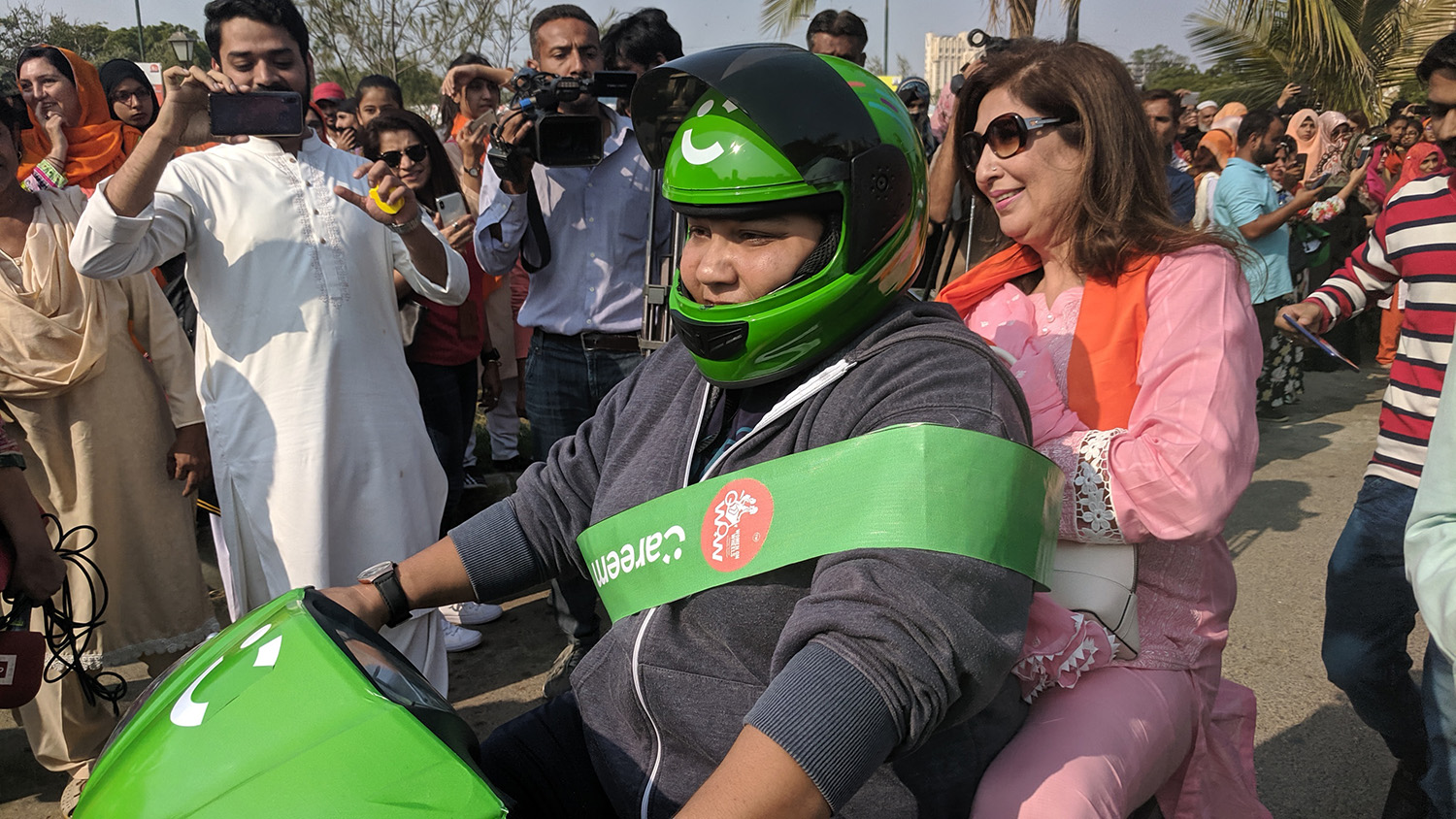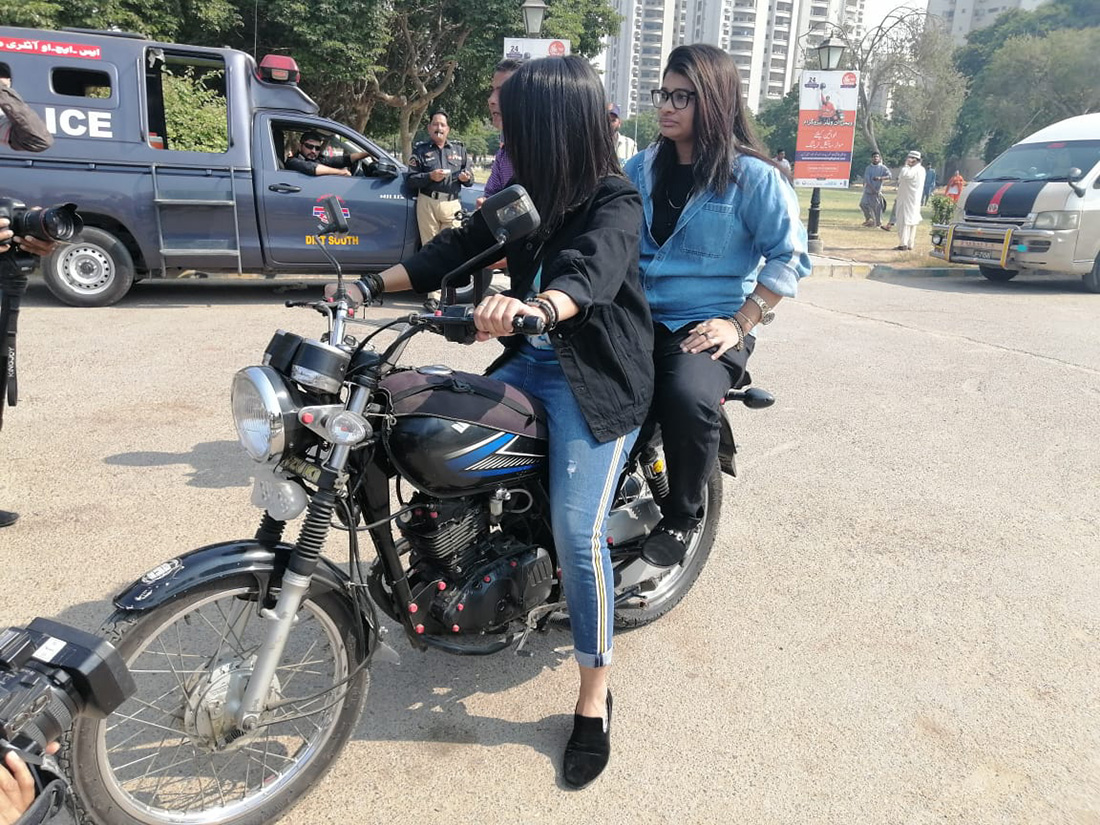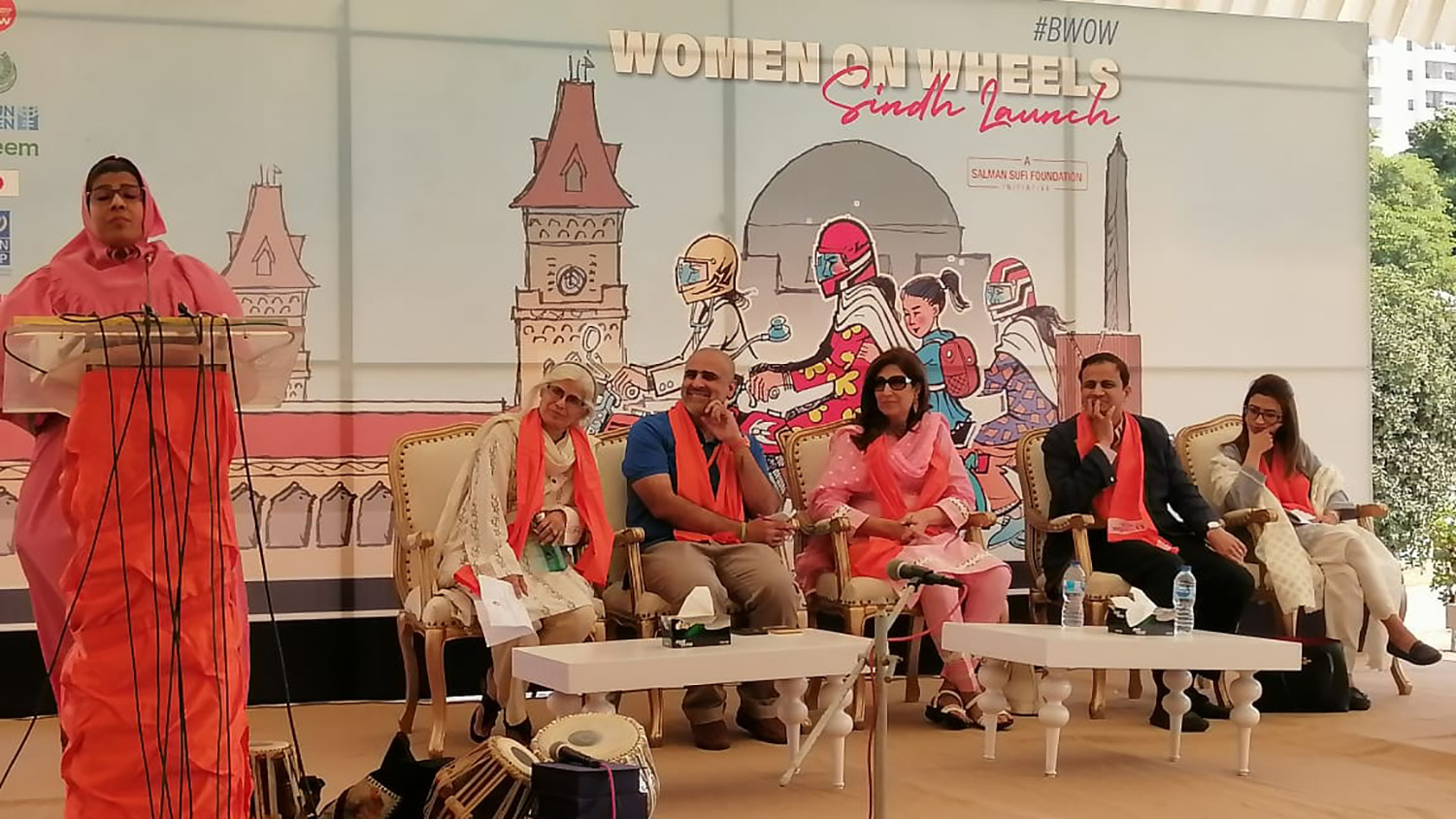KARACHI: A motorcycle training program called Women On Wheels (WoW) was launched in Pakistan’s financial hub of Karachi on Sunday, aiming to teach at least 10,000 women from the southern Sindh province how to ride bikes by the International Day for Women in March.
The Women on Wheels campaign was launched in Pakistan’s largest province of Punjab last year where 5,000 women from poor backgrounds were trained to ride bikes.
Salman Sufi, the founder of the program who heads the Salman Sufi Foundation (SSF), said the campaign would be expanded to the northwestern Khyber Pakhtunkhwa province by the summer of 2020. In Karachi, he said over 6,000 women had already registered for the program and a first batch would start receiving training at Karachi University from Monday.

Shehla Raza, Sindh’s minister for women’s development, sits behind a rider during the inauguration of the Women on Wheels program in Karachi, Pakistan on Nov. 24, 2019. Raza has also registered herself to receive training through the program. (AN Photo)
The project is a bold and rare initiative in a conservative Muslim country where women barely account for 22 percent of the workforce and where fathers, brothers and husbands often dictate women’s movements, even in modern metropoles like Karachi.
Restrictions imposed on women by men against using most forms of public transport limit their ability to leave their neighborhoods for work or education, according to a 2017 study by the International Growth Center.
“Around 49 percent of the [women] population depends on men and public transport [for mobility] and as a result their right to earn, to get jobs and to go to college, has been snatched,” Sufi told Arab News at the launch event at Karachi’s Frere Hall.

Two girls ride their bikes at the inauguration of the Women on Wheels program at Frere hall in Karachi, Pakistan on Nov. 24, 2019. (AN Photo)
Other than teaching women to ride bikes, Sufi said the initiative will also provide the women with jobs and micro-finance loans.
“This is not a program but a revolution and when there is revolution, there are always hurdles,” Sufi said, adding that the women would also receive self-defense and anti-harassment trainings.
“With the assistance of the Sindh government we are also launching an anti-harassment pp so if, God forbid, any [harassment] case happens, it may be immediately reported for action,” he said.

Sakina Ashfaq Hussain, a woman motorcyclist, speaks to Arab News at the inauguration of the Women on Wheels program at Frere hall in Karachi, Pakistan on Nov. 24, 2019. (AN Photo)
Many women who already ride bikes in Karachi city were invited to the launch event.
“When I started riding a bike, my husband opposed the idea saying ‘what will people say’,” said Sakina Ashfaq Hussain, a local woman who has been biking to work for the last four years. “Then when he had a heart attack recently, I took him on my bike to the national institute of cardiovascular diseases.”
Hussain, who wears an abaya, said she had no trouble riding her bike even in the flowing robe.
Sufi said the project had received strong support and endorsement from the Sindh Government’s Women Development Department. Also, international organizations such as UNDP and the government of Japan have partnered with Sufi to set up training centers and develop anti-harassment safety application. To expand the program beyond Karachi, SSF will work in collaboration with UN Women.
Aisha Mukhtar, the deputy country representative for UN Women, said mobility was a major obstacle for women looking for job opportunities: “This is a great way forward toward the empowerment of women but we will also need to eliminate harassment at public place.”
Murtaza Wahab, a spokesperson for the Sindh Government, said the government was fully committed to providing assistance to the program.
“We will provide women free of cost driving licenses. Facilitation centers will be setup to help those who want to ride bikes and loans will also be arranged for those who cannot afford to buy the bikes,” Wahab said.
Sindh minister for women development, Shehla Raza, said she had registered herself to receive training on how to ride a bike.















